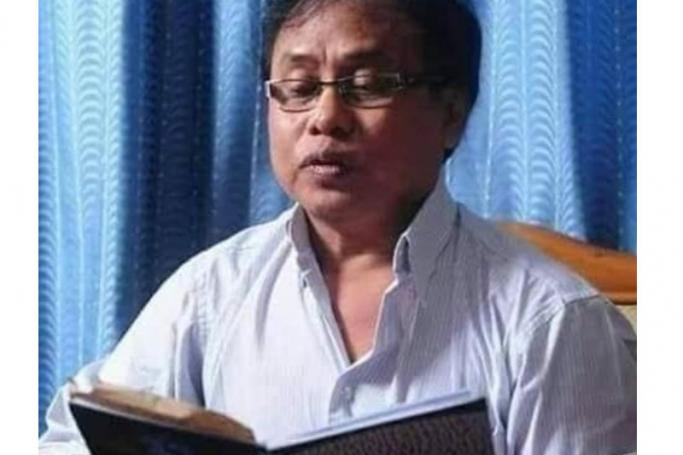Myanmar writers this year feature prominently in PEN America’s annual Freedom to Write Index, providing a count of the writers and public intellectuals who were held in prison or detention during 2021 in relation to their writing or for otherwise exercising their free expression.
The Freedom to Write Index 2021 report, which offers a ranking, has just been released.
Notably, Myanmar jumped up to third in the rankings, as the single largest source of new cases following the country’s military coup in February 2021.
According to the report, the Myanmar junta detained at least 26 writers in 2021, and now ranks third in the world behind Saudi Arabia, with 29 writers in detention, and China with 85.
The Freedom to Write Index 2021 report details the widespread threats to free expression around the world by analyzing key cases among at least 277 writers and public intellectuals detained during 2021, and examining trends in the 10 countries in which the freedom to write is particularly under threat.
The world heard echoes of history throughout the year as a global resurgence of authoritarianism brought sweeping crackdowns on writers and cultural spaces, with illegitimate regimes seeking to reclaim power by invoking fear and shutting down dissent.
Writers were at the forefront of resistance to these efforts, making them targets of censorship, detentions, and violence; including the arrests of influential writers and cultural luminaries opposing Myanmar’s military coup, and new threats emerging from the Taliban’s return to power in Afghanistan. In the face of rising authoritarianism, the voices of writers are indispensable in helping us to speak truth to power and imagine alternate visions, and the freedom to write has never been more essential to protect.
Freedom to Write Index 2021 report shows that writers around the world faced increased threats from both authoritarian takeovers and ongoing systemic repression, with dozens of new arbitrary arrests compounded by the COVID-19 pandemic and its spread within jails and prisons. Similar to last year’s findings, China and Saudi Arabia still jailed the majority of writers counted in the Index.
Meanwhile, rounding out the Top 10, Turkey, Egypt, Belarus, Vietnam, India, and Eritrea saw either no change or had slight decreases in their numbers of imprisoned writers in comparison to 2020. This, however, does not represent a freer space for expression; in the 36 countries included in the 2021 Index, writers continued to face a myriad of threats in the form of digital surveillance, costly trials, mounting legal charges, restricted freedom of movement, and online and physical violence.
Globally, more than 20 percent of the writers counted are serving extreme sentences for their peaceful expression of more than 10 years behind bars; 11 of these have been jailed for life, an incredibly steep price to pay for their words.
Knowing the power of writers as leaders of creative resistance, authorities in both democratic and authoritarian countries have sought to constrain influential figures through legal charges and detentions to prevent them from reaching wider audiences and inspiring others to take action.
Eight writers and public intellectuals in particular—namely Maung Thar Cho, Xu Zhiyong, Arash Ganji, Ismail Alexandrani, Valeria Kostyugova, Maykel Castillo Pérez, Kakwenza Rukirabashaija, and Yury Dmitriev—have been featured in the report to bring visibility to their unjust detentions and to demonstrate that their voices and ideas will not be silenced. The work of writers and public intellectuals to uncover history and speak truth to power is crucial to the protection of free expression and human rights in every society, and it remains imperative to push back against these incursions on the ability to think and write freely.
Maung Thar Cho, a Myanmar professor, poet, and political satirist, was arrested just hours after the military coup and charged with spreading “false news,” according to PEN. He was subsequently sentenced to two years imprisonment with hard labour and is currently being held in Insein Prison in Yangon, “undergoing periods of solitary confinement and denied access to adequate medical care.”












